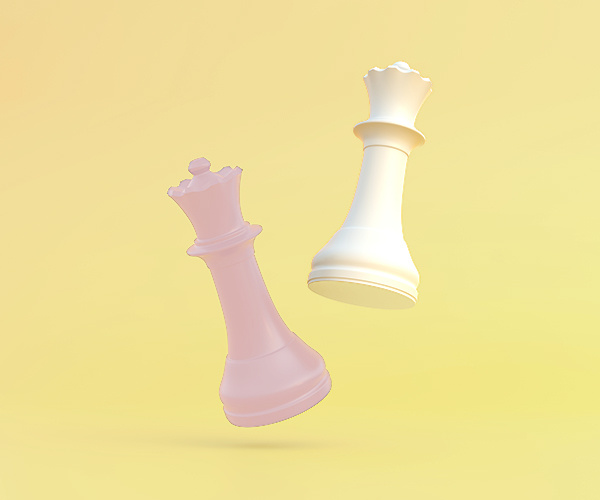
Most of us do not actively seek out conflict with others because a conflict is by definition not a pleasant experience. As parents, we also instinctively want to shield our children from such unpleasant experiences. At the same time, however, conflicts are an inescapable fact of life because each of us is different from the next person in any number of ways. And when people come from different backgrounds, want different things, and have different opinions on things, we will disagree and come into conflict. This is especially the case with children, who have not fully learnt how to compromise or to delay gratification. For this reason, conflict management and resolution are a crucial component of how we build and sustain relationships with other people, and the earlier we learn how to do this effectively, the better. This article aims to share some practical steps for how you can help your child learn to manage and resolve conflict in a manner that helps them build constructive relationships with his or her peers, teachers, and parents.

1. Practice Empathy
So, what do you do when you find out your child has been involved in a conflict with a sibling, classmate, or even with yourself or your spouse? The most important thing you can do is to practise empathy. Putting yourself in the other person’s shoes is key to resolving conflicts regardless of the age of the two parties concerned, as most married couples can attest to. When you practise empathy with your child, you not only help him or her feel understood but also model the appropriate behaviour for him or her to learn from.
In addition, allow your child the time to process their emotions before declaring the episode over and done with. Talking the conflict over with him or her gives your child the opportunity to learn how to deal with his or her feelings in a mature manner. Let him or her know, for example, that a single conflict does not define the entire relationship, and that no matter how rotten he or she feels in the present moment there is nearly always the possibility of resolution, forgiveness and moving on. In this way, you are also acting as a pillar of support for him or her, giving your child the reassurance that you will always be there for them.

2. Figuring Out the Underlying Reasons
Secondly, it is also important for parents to fully understand what the conflict is about and how the situation has developed before coming up with a strategy to handle the issue. Questions you should ask include:
- Whether the conflict is a quarrel with a single friend, or something that affects the entire class?
- Whether the conflict is due to a simple misunderstanding, or if there is a deeper underlying issue in play?
- What views or opinions your child is holding that could be exacerbating the conflict?
Children, especially those of a younger age, may often also be completely unaware of the other party’s perspective in the heat of the moment. You have an important role to play in helping your child exercise empathy and to ask how he or she would feel in the other child’s shoes. For example, your child may have inadvertently hurt his classmate’s feelings with an inappropriate joke, causing the other party to lash out verbally in return. In this case, you could help your child understand that what he saw as a harmless joke was perceived differently by his classmate by drawing a parallel to how his own feelings were hurt by the classmate’s response.

Conflict Resolution Strategies
Conflict resolution can begin once your child has processed his or her feelings and is able to accept the other party’s point of view. You can teach your child a few simple strategies that he or she can put into practice, and that continue to be relevant in adult life. Instead of endlessly circling around the points of disagreement, your child can learn how to move past the conflict by proposing solutions – what adults know as the art of compromise.
If the outcome of a game is being disputed by your child and a friend, perhaps they would both be better off with a “redo” at a later point and to hold off on declaring a winner for the moment.
You should also teach your child the benefit of letting tempers cool before re-engaging on the issue. One way of doing so is by modelling the behaviour and demonstrating to your child how some conflicts just fade away when both parties have calmed down. Lastly, if things do get out of hand, emphasise to your child the importance of being prepared to look for an adult or authority figure to mediate between the two parties. There is a reason that mediators exist, and that is because a neutral third party often brings much needed perspective to any disagreement. When the disagreement is between two children, the intervention of older and wiser heads can prove decisive.
The Learning Lab is now at locations. Find a location that suits your needs.
If you have any questions about our range of programmes or class schedules, you may contact us at 6733 8711 or drop us an email at enquiry@thelearninglab.com.sg.

Preparing Your Child to be a Leader of Tomorrow
The frequency of conflict doesn’t lessen as we grow older - in fact the opposite may be true. Most people just get better at managing conflict because the opportunity cost of not doing so becomes increasingly steep as we take on more responsibilities in the workplace and at home. It is to your child’s benefit for him or her to pick up conflict management skills as early as possible.
At The Learning Lab, we believe in equipping our students with both the classroom knowhow and important life skills that they will need to develop in a holistic manner. Our teachers are there to resolve any conflicts that occur in the classroom and go the extra length to model the right behaviours and to offer character guidance.
The Learning Lab is now at locations. Find a location that suits your needs.
If you have any questions about our range of programmes or class schedules, you may fill in the form below or contact us at 67338711 / enquiry@thelearninglab.com.sg.


